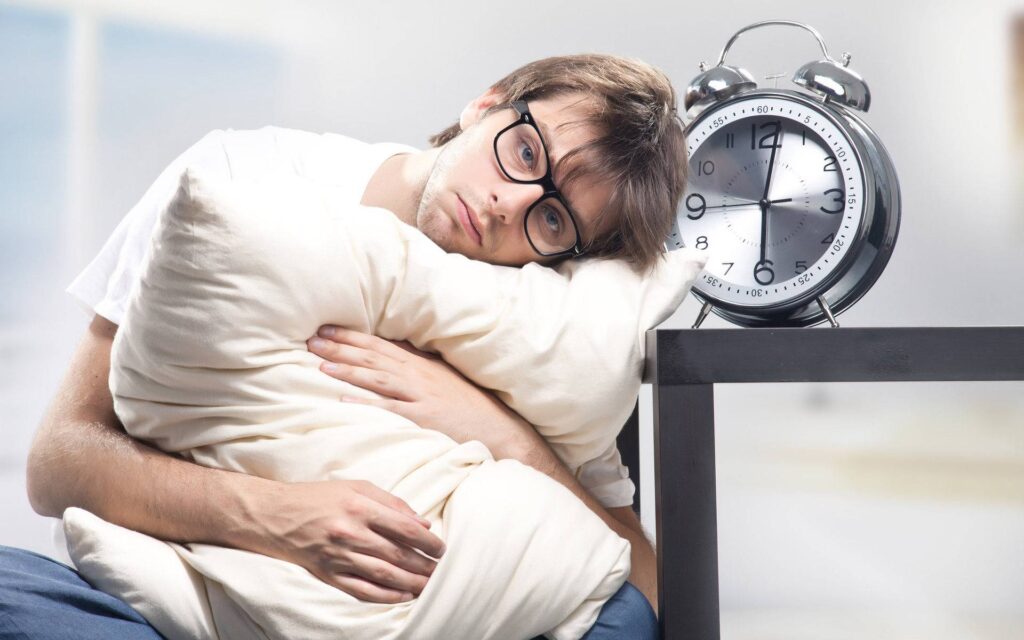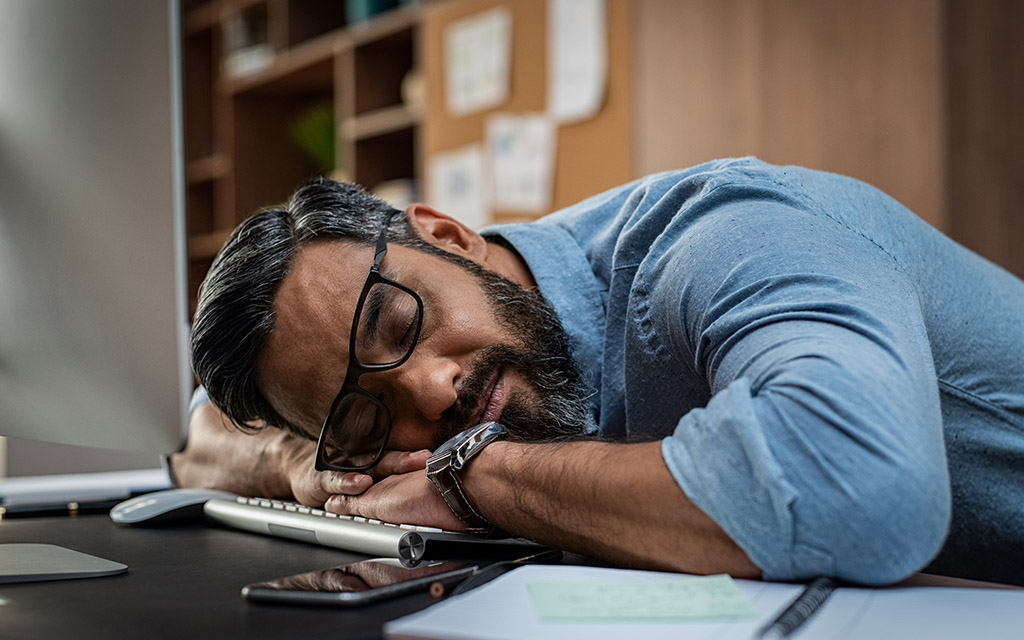Insomnia at night is one of the problems that many people face for various reasons. Having trouble falling asleep, waking up several times during the night, and waking up too early in the morning are all considered insomnia. What factors cause insomnia during the night? How can insomnia be treated? What are the valuable drugs to treat insomnia? Stay with us until the end to answer these questions and more in this article.
Insomnia at night depends on what factors?
In some cases, many adults experience short-term insomnia that lasts for days or weeks, usually the result of stress or a traumatic event. However, some people suffer from long-term insomnia, sometimes lasting a month or more.
Insomnia may result from diseases and drug side effects. On the other hand, it may not be related to the disease or the side effects of another drug. The important thing is that insomnia should not be tolerated, and its cause should be found.

Symptoms of nocturnal insomnia
People who suffer from nocturnal insomnia generally consult a doctor with the following symptoms:
- Trouble sleeping at night
- Waking up frequently during the night
- Waking up too early
- Restlessness after a night’s sleep
- Tiredness or sleepiness during the day
- Depression or anxiety
- Difficulty paying attention and concentrating on tasks
- Increased error or accident
- Reduced performance in various activities
- Increasing the likelihood of mental illness

Cause of insomnia at night
In most cases, the common causes of insomnia and lack of sleep are stress, incorrect lifestyle choices, and problems that disrupt sleep. In the following, we will examine these cases.
Stress and mental pressure
Worries about work, school, health, finances, or family can keep a person’s mind active at night and make sleeping difficult. Stressful life events or trauma, such as the death or illness of a loved one, divorce, or job loss, may also lead to sleepless nights.
Travel or work plans
A person’s circadian schedule acts as his biological clock, regulating the sleep-wake cycle, metabolism, and body temperature. Disruption in life planning due to worry about travel delays across multiple time zones, night shift work, or frequent shift changes can lead to insomnia.
Bad sleeping habits
Poor sleep habits include an irregular sleep schedule, napping, exciting activities before bed, an unpleasant sleeping environment, and using the bed for work, eating, or watching TV. Working on the computer, watching TV, playing video games, and working with smartphones or other screens right before bed can disrupt your sleep cycle and lead to insomnia.
Binge eating at night.
Eating a light snack before bed is okay, but overeating can make you feel physically uncomfortable when lying down. After eating, many people experience heartburn and reflux of acid and food from the stomach into the esophagus (gastroesophageal reflux), which may keep them awake.
Mental health disorders
Anxiety disorders, such as post-traumatic stress disorder (PTSD), may disrupt your sleep. These disorders cause you to experience insomnia at night, along with other mental health disorders.

medicines
Many prescription medications, such as antidepressants, Parkinson’s drugs, asthma or blood pressure medications, can disrupt sleep. Many over-the-counter medications, such as some pain relievers, allergy medications, cold medications, and weight loss medications, can disrupt sleep.
For this reason, struggling with incurable or chronic diseases causes insomnia. In response to the question, what is the symptom of insomnia? It should be noted that chronic pain, cancer, diabetes, heart disease, asthma, gastroesophageal reflux disease, hyperthyroidism, Parkinson’s disease, and Alzheimer’s disease are among the types of diseases that cause insomnia.
Sleep-related disorders
Stopping breathing or sleep apnea causes the breathing to stop repeatedly during the night and disrupts sleep.
Restless leg syndrome is also a common disorder that causes unpleasant sensations in the legs. In most cases, this prevents restful and complete sleep.
Consumption of caffeine, nicotine, and alcohol
Coffee, tea, cola, and other caffeinated drinks are stimulants. Drinking them late at night can cause sleep disturbances and insomnia. Nicotine in cigarettes and different types of tobacco is another stimulant that can disrupt sleep. Alcohol is another substance that can help you fall asleep quickly. Still, it prevents the deeper stages of sleep and often causes you to wake up in the middle of the night.
getting older
A large number of people who seek treatment for insomnia are the elderly. Taking various medicines and suffering from diseases such as arthritis, depression, prostate problems, bladder prolapse, and other factors cause insomnia in the elderly. Meanwhile, this age group also needs the same amount of sleep as young people.
What is the quick cure for insomnia?
There are some easy ways to fall asleep faster. Some of these methods are:
- Focus on your breathing
- Read a book or magazine
- Drink herbal tea like chamomile tea
